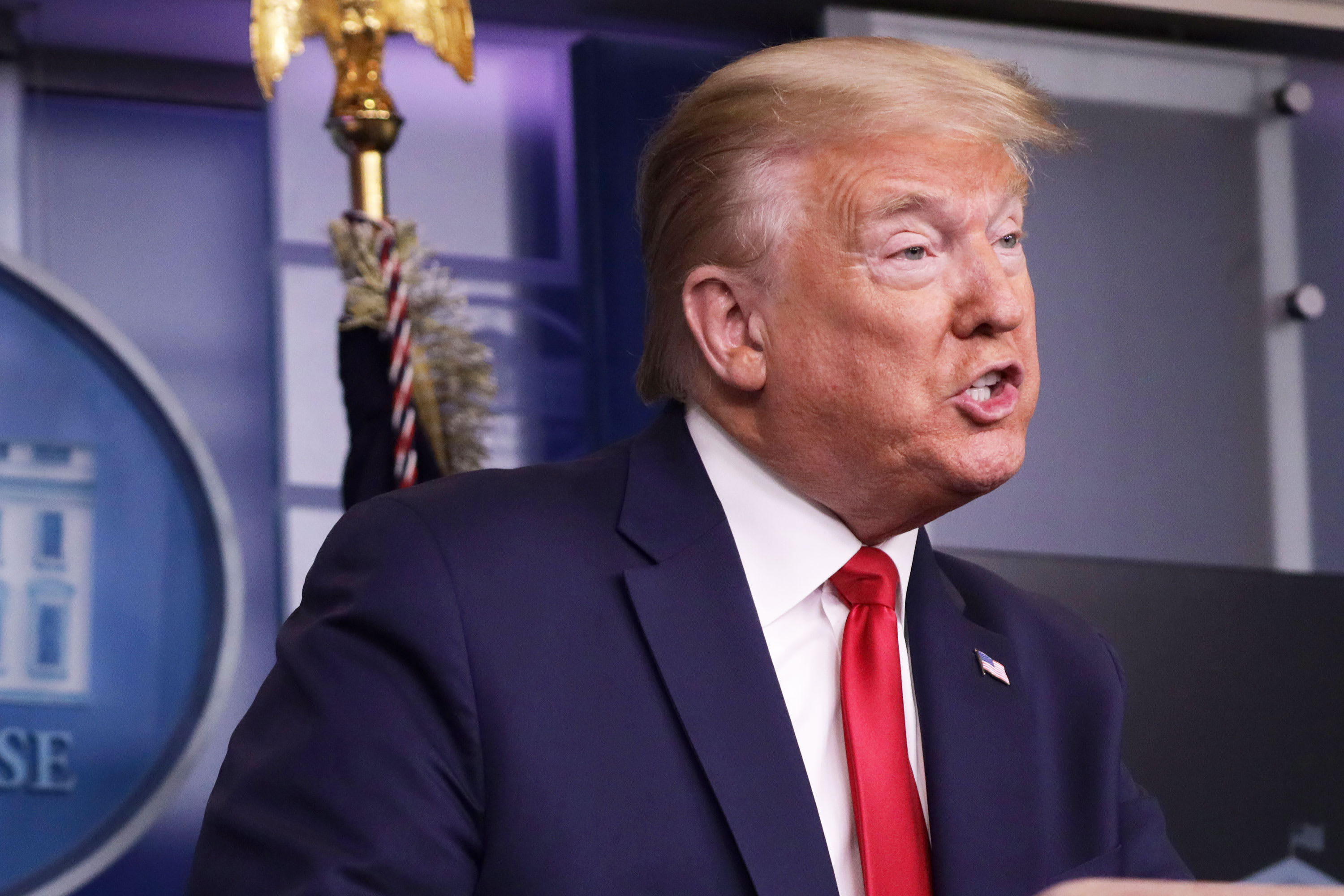
U.S. President Donald Trump makes a statement in the briefing room at the White House on May 22, 2020 in Washington, DC.
Alex Wong | Getty Images
President Donald Trump plans to sign an executive order Thursday cracking down on online platforms such as Facebook, Google and Twitter, vowing “a Big Day for Social Media and FAIRNESS!”
The move comes days after Twitter began fact-checking some of his tweets.
The order would push the Federal Communications Commission to write rules on when and how platforms can remove content from their platform and still maintain liability protection granted them under Section 230 of the Communications Decency Act. The law as it stands largely exempts those publications from being held liable for much of the content on their websites.
The working order, which cites Twitter by name, would encourage the Federal Trade Commission to take action against companies that engage in “deceptive” acts of communication.
The order would also create a working group of state attorneys general to review relevant state statutes.
“This will be a Big Day for Social Media and FAIRNESS!” Trump tweeted.
Without congressional action, there are limits to what Trump can do with an executive order. Still, his words seemingly weighed on social media companies’ share prices Thursday morning. Shares of Twitter were down 5% in premarket trading, while Facebook was down more than 3% and Google was down more than 1%.
Section 230 has become a lightning rod in the debate over online content. Online publishers have defended the statute as necessary to allow people to express their opinions, while their detractors have argued it gives companies like Twitter a way to sidestep regulations imposed on traditional publishers, despite the crucial role they play in disseminating news.
Democratic presidential candidate Joe Biden has said he believes Section 230 should be “revoked.”
Some Democrats and Republicans have also pushed for changes in the law. Sen. Josh Hawley, R-Mo., introduce legislation last year that would remove the immunity big technology companies receive under Section 230.
The debate over online content has taken on new urgency in the run-up to the 2020 elections, in which both parties have found reasons to angry with social media. House Speaker Nancy Pelosi earlier this year urged Twitter and Facebook to delete a post of her tearing up Trump’s State of the Union address, as it was edited to appear as if she was doing so as Trump saluted a Tuskegee airman in the audience.
Conservatives have accused companies like Google and Twitter of censoring conservative speech. Trump slammed Twitter this week when the social media giant applied warning labels to two of his tweets that made misleading claims about mail-in voting.
In his own tweets Wednesday night, Twitter CEO Jack Dorsey said the intention of the fact-checking measure was ” to connect the dots of conflicting statements and show the information in dispute so people can judge for themselves.”
In a CNBC interview that aired earlier Thursday, Facebook CEO Mark Zuckerberg said he does not think social networks should be fact-checking what politicians post.
“Political speech is one of the most sensitive parts in a democracy, and people should be able to see what politicians say,” he told “Squawk Box” co-host Andrew Ross Sorkin.
Twitter and Facebook declined to comment. A representative for Google didn’t immediately respond to a request for comment.
_ CNBC’s Ylan Mui, Lauren Feiner and Marty Steinberg contributed to this report.

